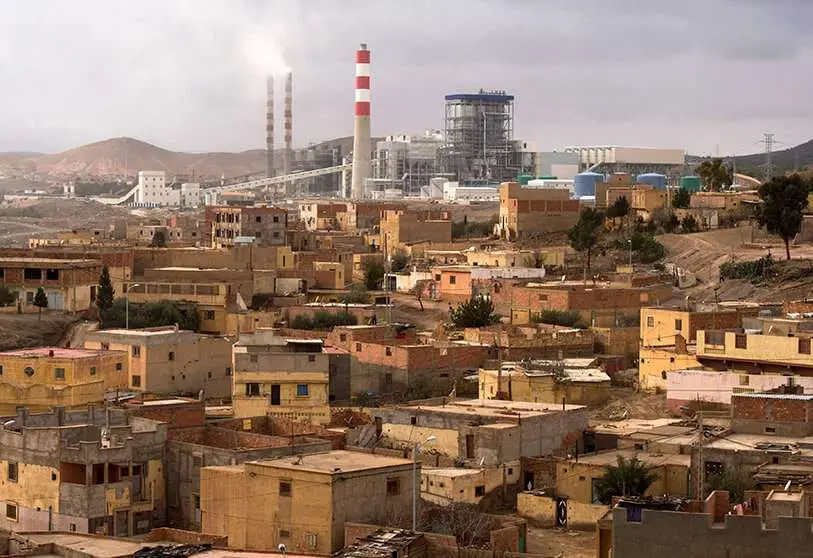Marruecos suministrará a la India 1,7 millones de toneladas de fosfatos

Morocco, one of the world's largest phosphate producers, has just signed an agreement with India to supply the country with 1.7 million tonnes of phosphate fertilisers over the next 12 months. OCP Group, one of the world leaders in the field of fertilisers, signed an agreement with the Indian Ministry of Health, Chemicals and Fertilisers in Rabat, Morocco. The MoUs were signed by the leaders of the OCP Group and the respective Indian fertiliser manufacturers in the presence of Minister of Health, Chemicals and Fertilisers, Mansukh Mandaviya, Indian Ambassador to the Kingdom of Morocco, Shri Rajesh Vaishnaw, and OCP Group Chairman and Managing Director Mostafa Terrab as reported in the OCP press release.
The contracts include 700,000 tonnes of triple super phosphate (TSP), a phosphate-based fertiliser with the highest phosphate content among nitrogen-free granular fertilisers that can be tailored to the specific needs of Indian plants and soils, explained the group, which recalled that tailor-made fertilisers are more beneficial to soil health and therefore reduce waste. The agreement also allows for the supply of one million tonnes of diammonium phosphate (DAP) to Indian farmers, the same source added, noting that through this strategic partnership, the OCP Group and India are committed to "improving food security and reaffirming their shared goal of supporting innovation and sustainability and sustainable agriculture".

The purpose of the partnership is to implement joint research and development programmes and jointly promote innovative fertiliser solutions; it also aims to collaborate with public sector agro-ecosystem stakeholders such as agronomy institutes, agricultural associations or farmers to work closely together to deliver fertilisers tailored to the specific needs of Indian farmers. Soufiyane El Kassi, president and CEO of OCP Nutricrops, a subsidiary that deals with soil and plant fertiliser solutions said they are delighted that India is interested in our Tailored Solutions (TSP) for farmers' income and accelerated adoption of sustainable agricultural practices.
Morocco owns 70% of the world's phosphate reserves, which automatically makes it a major player in global agricultural policy that wants to adapt to soil quality by supplying a variety of fertilisers. The OCP recently announced a new $13 billion fertiliser and phosphate investment plan focused on increasing fertiliser production capacity and achieving carbon neutrality by 2040. With this agreement, Morocco consolidates its global leadership in phosphate production and establishes itself as a major supplier of agricultural fertilisers to India.

The war in Ukraine has caused fertiliser prices to soar, as Russia is a major supplier of ammonia and natural gas, two of the main ingredients of fertilisers. Morocco's OCP quickly began to fill the gap left by Russia and many other companies were forced to close due to rising production prices. While OCP has historically relied on Russia for ammonia, business has turned to the United States, which expects to provide ammonia and even increase fertiliser production at the height of the global fertiliser crisis.
In this context, OCP prefers to take a unique approach using innovation to reduce production costs while using raw materials sustainably. In Africa, the company has deployed a modern mobile laboratory to take soil samples and optimise fertiliser production. "Using this data, farmers can map which plots need what kind of nutrients and when. Using the right fertilisers more efficiently, using only what is needed and will be used for specific soils and crops, reduces waste and runoff into groundwater and surface water," wrote Mostafa Terrab, CEO of OCP, in a blog post on the sidelines of the Davos 2023 Forum.








